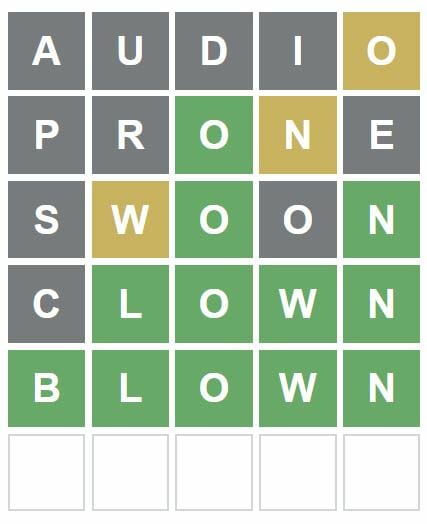Understanding The Sound Perimeter: Music's Role In Our Lives

Table of Contents
The Emotional Impact of Music
Music's power lies, in part, in its remarkable ability to directly influence our emotional state. This emotional regulation through music is a complex interplay of various musical elements and individual experiences.
Music as an Emotional Regulator
Music acts as a potent tool for managing emotions, capable of soothing anxieties, energizing us for action, or even helping us process difficult feelings.
- Relaxation: Genres like classical music and ambient electronica are frequently used for relaxation and stress reduction due to their calming tempos and predictable harmonies.
- Motivation: Upbeat pop, rock, and electronic dance music often serve as motivational tools, boosting energy and focus through their fast tempos and driving rhythms.
- Grief Processing: Sad ballads, reflective folk music, and certain forms of classical music provide a space for processing grief and sadness, allowing for emotional release and catharsis.
The tempo, melody, and harmony of a piece work together to shape our emotional response. Research in music therapy has shown the effectiveness of tailored music interventions in managing anxiety, depression, and other emotional challenges.
Music and Memory
The connection between music and memory is strikingly strong, often triggering vivid autobiographical memories – a phenomenon known as the Proust effect. A familiar song can instantly transport us back to a specific time and place, rekindling associated emotions and sensations.
- Life Events: Many individuals have songs inextricably linked to significant life events, such as first loves, graduations, or losses. These songs act as powerful memory cues.
- Nostalgia: Music plays a key role in evoking nostalgia, a bittersweet longing for the past, often associated with feelings of comfort and sentimentality.
Neurologically, music engages multiple brain regions involved in memory processing, explaining its effectiveness in retrieving and strengthening memories. Music therapy utilizes this connection to aid in memory rehabilitation for individuals suffering from memory disorders, like Alzheimer's disease.
The Social Significance of Music
Beyond individual experiences, music plays a crucial role in shaping social interactions and cultural identity. It acts as a powerful social connector, bringing people together and fostering a sense of shared experience.
Music as a Social Glue
Music has historically served as a unifying force, creating communities and shared identities.
- Communal Music-Making: From choirs and orchestras to jam sessions and karaoke nights, communal music-making strengthens social bonds and fosters a sense of belonging.
- Social Movements: Throughout history, music has been a powerful tool in social and political movements, inspiring unity, protest, and collective action. Think of protest songs and anthems that mobilize entire populations.
The genre of music often influences group affiliation and identity formation. Specific musical styles can become deeply associated with particular communities or subcultures.
Music and Cultural Expression
Music is a potent means of cultural expression, reflecting and shaping the values, beliefs, and traditions of different societies.
- Traditional Music: Traditional music forms from diverse cultures offer valuable insights into their history, social structures, and spiritual beliefs.
- Global Music Diffusion: The spread of musical genres across geographical boundaries highlights music's role in promoting intercultural exchange and understanding.
The preservation and dissemination of traditional music are crucial for maintaining cultural heritage and fostering cross-cultural dialogue.
The Cognitive Benefits of Music
Beyond its emotional and social impacts, music also significantly benefits cognitive development and brain health.
Music and Cognitive Development
Research consistently demonstrates a strong correlation between music education and enhanced cognitive skills.
- Improved Academic Performance: Studies have linked participation in music lessons to improved academic performance in areas such as mathematics and language skills.
- Enhanced Memory and Attention: Musical training strengthens memory, attention span, and executive function, crucial cognitive skills that benefit all aspects of life.
These improvements are attributed to the complex cognitive demands of learning and performing music, leading to increased brain plasticity and neural connectivity.
Music and Brain Health
Music therapy is increasingly recognized for its potential in improving cognitive function and mental well-being, particularly in older adults and individuals with neurological conditions.
- Alzheimer's Disease: Music therapy can stimulate memory and reduce agitation in individuals with Alzheimer's disease, improving quality of life.
- Stroke Rehabilitation: Music-based interventions can assist in motor recovery and speech therapy following strokes.
Studies show the positive effects of music on cognitive function, mood regulation, and overall mental well-being across various age groups and neurological conditions.
Conclusion
In conclusion, understanding the sound perimeter – the pervasive influence of music in our lives – reveals its profound impact across emotional, social, and cognitive domains. Music is far more than simple entertainment; it's a fundamental element of the human experience, shaping our memories, defining our identities, and influencing our brain function. Further your understanding of the sound perimeter by exploring different musical styles, engaging in music-related activities, and appreciating the multifaceted power of sound in shaping your world. Let music enrich your life; delve deeper into the power of sound and its role in your sound perimeter.

Featured Posts
-
 Discover Unusual Eats At The Manhattan Forgotten Foods Festival
May 22, 2025
Discover Unusual Eats At The Manhattan Forgotten Foods Festival
May 22, 2025 -
 Wordle 363 Hints And Answer For March 13th
May 22, 2025
Wordle 363 Hints And Answer For March 13th
May 22, 2025 -
 Klyuchovi Momenti Peregovoriv Yevrokomisar Pro Maybutnye Ukrayini V Nato
May 22, 2025
Klyuchovi Momenti Peregovoriv Yevrokomisar Pro Maybutnye Ukrayini V Nato
May 22, 2025 -
 From Underdogs To Champions Analyzing Liverpools Resurgence Under Juergen Klopp
May 22, 2025
From Underdogs To Champions Analyzing Liverpools Resurgence Under Juergen Klopp
May 22, 2025 -
 Da Phat Trien Giao Thong Tp Hcm Binh Duong Nho Cac Du An Ha Tang
May 22, 2025
Da Phat Trien Giao Thong Tp Hcm Binh Duong Nho Cac Du An Ha Tang
May 22, 2025
